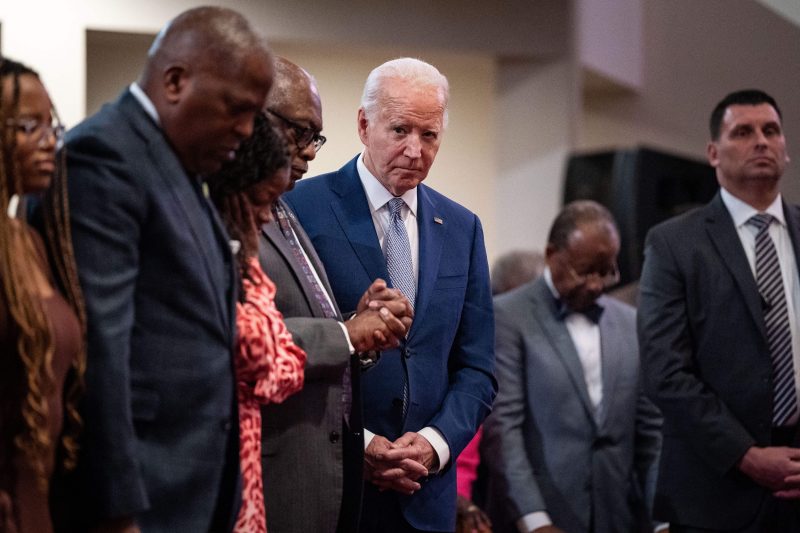In a recent Ipsos poll, concerning statistics have emerged regarding the participation of Black voters in the upcoming 2024 election. According to the research findings, fewer Black voters are inclined to cast their ballots compared to previous elections. While this trend is concerning, it sheds light on various factors that may be influencing this shift in voter engagement within the Black community.
One of the significant reasons highlighted in the survey is the disillusionment or dissatisfaction with the political system and the representation it offers to the Black population. Historically, many Black Americans have faced systemic obstacles such as voter suppression, gerrymandering, and lack of adequate representation in policymaking. These challenges can make individuals question the efficacy of their vote and lead to apathy towards political participation.
Furthermore, the Ipsos poll indicates that economic concerns are playing a crucial role in shaping the perspective of Black voters. Issues such as income inequality, job opportunities, and access to affordable healthcare have a direct impact on the daily lives of many Black Americans. When individuals feel that their economic well-being is not a priority for elected officials, they may be less motivated to engage in the electoral process.
Another factor contributing to the decline in voter turnout among Black voters is the lack of effective outreach and mobilization efforts targeting this demographic. Political campaigns and parties must invest resources in engaging with Black communities, addressing their specific needs and concerns, and building trust to increase voter participation.
Moreover, the Ipsos poll highlights the importance of representation and diversity in politics. When Black voters do not see themselves reflected in the candidates or policies put forth by political parties, it can lead to a feeling of disconnection and alienation. Having diverse voices and perspectives in leadership roles can help build trust and encourage broader participation in the democratic process.
It is crucial for policymakers, community leaders, and advocacy groups to address the underlying causes of decreased voter engagement among Black voters. By working to dismantle systemic barriers, prioritize economic justice, improve outreach efforts, and promote representation, we can create a more inclusive and participatory democracy that truly represents the diversity of our society.
In conclusion, the findings of the Ipsos poll underscore the importance of understanding the complex reasons behind lower voter turnout among Black voters. By addressing these challenges and working towards a more equitable and inclusive political system, we can strive to ensure that all voices are heard and represented in the democratic process.

